Paid Family and Medical Leave

Headline doesn't print here.
Millions of Americans are struggling to take care of their loved ones battling serious health conditions -- all while trying to stay in the workforce. Family caregivers need all the help they can get. Paid leave could help make caregiving and working just a little bit easier.
The very patients and caregivers who are most likely to need paid family and medical leave are the ones that are least likely to have access to it.
Only 20% of workers in the United States have access to employer-provided paid family leave.
During the pandemic,
16% of Latino
and 13% of Black adults have left the workforce to provide care for an adult family member.


Latinos and Black Americans are 25% and 14% less likely to have access to any paid leave, despite being twice as likely to have Alzheimer's.

62% of caregivers working over 30 hours per week say paid leave would help them financially
19% of women have been forced to leave the workforce to provide dementia care.
Because of these startling disparities, as well as the ongoing surge of COVID-19, it is vital for Congress to support a national paid family and medical leave program that includes paid leave benefits for individuals with serious illnesses and their caregivers.
BENEFITS of PAID FAMILY and MEDICAL LEAVE

Nearly 60% of employed dementia caregivers reported paid family and medical leave enabled them to attend doctors’ appointments and provide care for their loved ones.
More than half (55%) of employed dementia caregivers who utilized paid family and medical leave benefits said it resulted in better emotional well-being.
The Link Between Paid Leave and Dementia Care
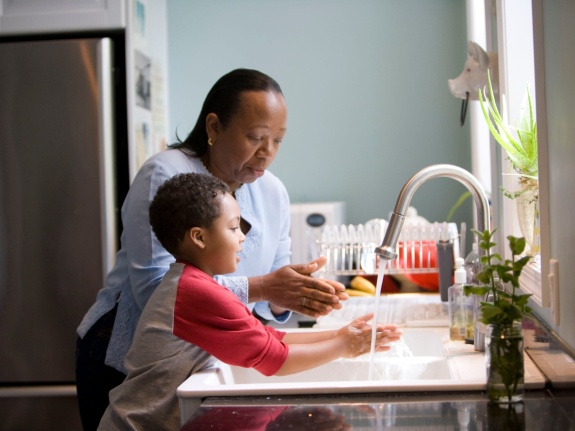
Take Action
Caregivers need our help more than ever.
As Congress considers a national paid family and medical leave program, it’s time to take action. The best way that you can ensure legislation passes to support caregivers is by sending a letter to your policy makers.
Kat Benn Mesa, Arizona (AZ-08)
“I'd spent the last decade acting as caregiver/financial manager for my parents, as first my father, then mother declined with Alzheimer's...Paid leave would have helped me be on better footing after my parents passed, rather than the mad scramble in the midst of grief to find work with a decade-long gap in my work history.”
Patti Garbeff Lenexa, Kansas (KS-03)
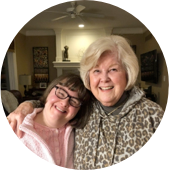
“Took care of my husband at home for 91/2 years, lost our home 3 weeks before Christmas 2008. My daughter, who has Down Syndrome, took care of her dad during the day while I work full time in Special Education at a high school. Took care of him when I got home from school.”
Geraldine Raleigh, North Carolina (NC-02)
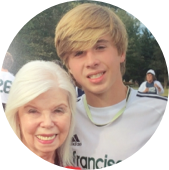
“Have been caring for my husband since 2018. I have many medical issues; my husband has dementia. I pay all our bills, shop for groceries, clean, coordinate medical appointments, prescriptions, and housekeeping. I prepare all meals. There should be a stipend and earned income credit from Social Security for caregivers like me.”
Alexis Elon, North Carolina (NC-06)
“My father didn't have Alzheimer’s but had numerous other health issues...My husband, two daughters and I moved in with him. For 14 years we took care of him...It was difficult taking care of my father, my daughters, the household and hold down a job too. Where I worked they were not very understanding. When my dad got real bad, I quit my job to stay home with him.”
Nancy Columbus, Georgia (GA-02)
“My husband was diagnosed with early onset Alzheimer’s 5 years ago. Three years ago, I relinquished my half of a business to my business partner. This business was only 4 years old... It started turning a significant profit last year. I reap none of those benefits.”
William Wichita, Kansas (KS-04)
“I was a biohazardous site/crime Scene Cleaner when dad was diagnosed. I tried to go part time, but it just did not work. I quit my job, moved to much cheaper housing, sold what I could, and helped mom care for dad for seven years. Now I am disabled, and the pandemic has sucked up every last possession I had, and I am nearly homeless. I may be going down, but at least I know my dad knew I loved him, and he didn't have to die alone.”
Teressa Durham, North Carolina (NC-04)

“I am the caregiver for my spouse whose dementia/Alzheimer's progressed rapidly. I am unable to leave my home unless he is with me because he wanders away from home. I have limited support; therefore, I am the only person who can stay with him all day. Currently, I am able to work from home, but I am unable to attend important business meetings which is jeopardizing my career...I have no one to come by to give me some relief time and can't afford to hire anyone.”
Catherine San Jose, California (CA-19)
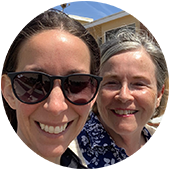
“The end of June 2018, my daughter, who I spoke with every day, called and said, “Mom, I have stage 4 metastatic colon cancer.” I became her caregiver. Unable to work I had to live on $1310/mo. It’s traumatic to be a caregiver for a family member. It should not also be a financial burden.”
Kathy Annapolis, Maryland (MD-03)
“Long distance caregiver for my sister with Alzheimer's and because of her illness am now permanent custodial guardian of my niece. So, between long-distance caring for someone with Alzheimer's disease and caring full time for an 11-year-old and as a single person with a full-time job and dealing with home schooling during the pandemic? OMG.”
Melanie Indianapolis, Indiana (IN-07)
“I'm actually writing as a nursing home employee rather than a family caregiver because it's so obvious to me how important this is. If it's a full-time job taking care of these patients, why wouldn't it be a full-time job for their families? If Congress has the power to do something to make it easier to keep family members at home with loved ones, they have an obligation to do it.”
Alice Raleigh, North Carolina (NC-04)
“As the Executive Director of Alzheimer's NC, I thought I knew what it meant to be a caregiver after listening to the devastating stories of families and 24-hour caregiving for 15 years, but when my retired military husband was diagnosed with terminal prostate cancer and I became his caregiver, I had no idea the toll sleepless nights, juggling work and caregiving would take...Yes, there should be paid family and medical leave. Patients are happier and receive better care from those who love them.”
Susan Hoboken, New Jersey (NJ-08)
“I am the only child of two 97-year-olds who live 130 miles away. The caregiving burdens have increased as they could no longer manage their own health care decisions, then had to give up driving, then managing their finances, and had increasing issues with basic hygiene care...I switched to consulting to have more flexibility and less professional responsibility so I could attend to them more. Now I have to pare back those hours even more to manage their household from afar. It is financially and emotionally taxing.”
Kathy Duluth, Minnesota (MN-08)

“I am an Essential Caregiver for my Mother at a Nursing Home, and it is a full-time job. Because she is my priority I serve as an “extra hand” at the Facility by focusing on Mom's quality care by assisting with companionship, daily living activities, and ensuring that her everyday needs and cares are met. Because it truly is a dedication of the heart and demands a lot of time, energy, and focus, I was unable to continue working at a full or part time job.”
Mahogany Houston, Texas (TX-22)
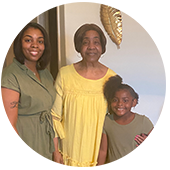
“I’m my grandmother's caregiver and have been for the last 4 years. She was living with me before the diagnosis, and I was helping them as well. While caregiving I was working a full-time job at a mental health facility and had to leave due to the stress/pressure of both working and caregiving.”
Meg Norwell, Massachusetts (MA-09)

“My husband was diagnosed at age 53. Our two children were beginning college. I became the sole support of my family. I had to work. Our savings were depleted first then we sold property to pay for college tuition and re-mortgaged our primary home. My daughter spent 2 years full time caring for her dad while I worked.”
Babs Toledo, Ohio (OH-05)
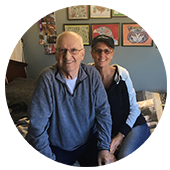
“During my father’s Alzheimer's, I took FMLA so that I could give my mother one respite day a week to care for herself. I could only afford to give one day as I was working full time and my income was needed in order for me to pay my bills.”
Kelley

“I quit my job ($80,000 a year) and moved home to take care of my mother. She was diagnosed with Alzheimer’s and her wish was to stay at home until she died. I have an 11-year-old son who also lives with us. It’s difficult for me to find much work because I need to look after my mom and son, which takes a lot of my time up.”
Judith Chicago, Illinois (IL-07)
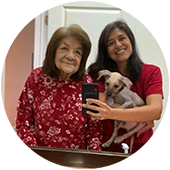
“I am a university assistant professor in social work. My sister, who also works full time, and I have provided care to Mom for the past 15 years. This past year my sister was diagnosed with breast cancer, so not only are we dealing with the grief of her condition and treatment, but we are also at a loss with even less support for Mom's care...This pandemic has been treacherous for addressing the needs Mom and all of us have at this time.”